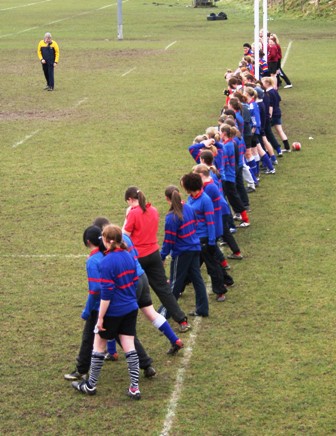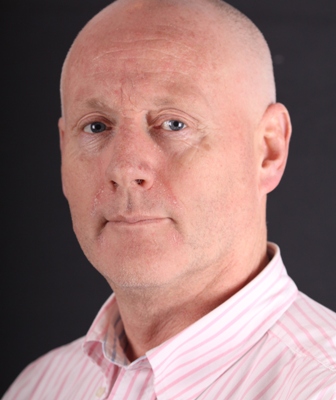
How much enthusiasm survives the move to secondary school?
Doing the business in Bury
Over the five years of our existence John Eady, “the man who wrote the book on sports development”, has been a regular and trenchant contributor to The Leisure Review. To mark our 50th edition, Mick Owen went to bang heads with the great man.

How much enthusiasm survives the move to secondary school?
The snow-peaked Pennines en route to the Bury offices of KKP, the consultancy set up, owned and run by John Eady, provide a metaphor for the man himself: they are part of the landscape, a joy to behold when the sun is shining but a dangerous place to go unprepared. In February 2012, with the ink still wet on a major Sport England contract, Eady, one of the gnarled veterans in a sector better known for its youth, was in full flow.
On the day of The Leisure Review visit, KKP’s offices were bustling with activity with new faces at every turn. One of these, Andrew Whitelam, the consultancy’s new communications manager, sat in on the interview, although the idea that a media minder was required was soon discounted. John Eady is not backwards in coming forwards. As a gentle opener, and following an explanation of the genesis of TLR which touched on the alphabet soup of professional bodies within the sport, leisure and culture sector, Eady considered the chestnut: “Does such a sector exist?” His answer was succinct: “Put the word ‘coherent’ in front of it and the answer is no. Arguably the word ‘leisure’ can be applied to everything that isn’t sleeping, eating to live or working and it’s pretty tough to wrap all the elements to which this applies into sector.”
His assessment of the professional bodies for people who work in sport and leisure was equally brusque. Focusing on the organisation created by merging ISPAL and ISRM he offered a simple assessment: “To date, it has spent a lot of time working on its own governance and structure. Going forward, leadership is key. It is difficult, as yet, to discern the impact IMSPA is having.”
Responding to the query as to whether IMSPA’s new chair, Miles Templeman, would be what the sector’s doctor ordered Eady’s response was that “he may be great, we don’t know yet... plenty of people know about sport so he doesn’t need that background.” Templeman, of course, has no prior, discernible affinity with the industry he is now purporting to lead. However, Eady does not see that as a problem in itself. “A bit of blue-sky thinking and business nous would be a good thing and I think IMSPA should be given credit for thinking outside the box in appointing him. What is essential is that he brings, or acquires, much more than a ‘back-page’ understanding of sport.”
One of the roles of a fit-for-purpose professional body is advocacy and the need for a voice at the highest political level was shown in October 2010 when a newly elected politician made the decision to do away with school sports partnerships (SSPs), a network its supporters saw as crucial to the future of sport and physical activity in the UK. Many mourned the passing of the Youth Sport Trust’s major creation but Eady was not one of them. While complimentary about some of the early schools-based interventions (in particular TOPS), he repeated a previously expressed concern at the relatively bureaucratic nature of SSPs and at his particular bugbear, the lack of proper, benchmarkable measurements of whether young people were getting more physically literate, getting fitter or going on to join a club.
Eady has long held the view that raising expectations at Year 6, by providing “extra-curricular entertainment”, and then not making adequate provision at Year 7, serves to fuel drop-off from sport and disenchantment with physical activity – even more important because the move from primary school to secondary is a life change he believes is “the biggest cultural shift most young people ever experience”. He pointed up the situation where children from a number of feeder primary schools, each with a netball team would, in most circumstances, move on to secondary school where there was only one team for them to play in and questioned how PE teachers and PDMs could justify that.
With The Leisure Review looking to consider ‘the demise of the sports development officer’ Eady offered up two insights. “Sports development is a philosophy or way of doing things, not a job,” before then arguing that, while some people and agencies are delivering very good sports development, many people with ‘sports development’ in their job title are being required to measure the wrong things and have not yet set up effective processes to “measure by doing”. Warming to this theme Eady, who is passionate about accurate management information and the appropriate measurement of outcomes, said: “It is essential that the targets set and pursued are meaningful and reflect quality outcomes.”
He does not, however, paint everyone in sports development with the same broad brush. Taking county sports partnerships as a case in point, Eady stated, “While some have made slow progress others have taken a strong lead and are making real headway. As in all walks of life it is largely down to the character and quality of the people that lead them.”
For Eady, then, it is all about people but the current state, and status, of sports development is a consequence of the more prescriptive approach taken by agencies such as Sport England and the Youth Sport Trust. The new contractual environment being driven by Sport England in which there is less prescription about method and a stronger emphasis on results is, he believes, to be welcomed so long as the outcome measures are fair.
Despite having recently won the right to continue developing the Clubmark scheme for Sport England, Eady is not prepared to disavow his interpretation of how we got where we are. “The world has become more bureaucratic,” he explained. “In one sense, the fact that there is a need for Clubmark is unfortunate. This said, the unanimous feedback from clubs that have gone through the process – and we have interviewed more than 600 of them in situ, face-to-face – is that, having done it, they are better organised and more effective in driving up participation, a sports development result.”
Support for Sport, a new brand for the sector to come to terms with, is clearly set to be a vital part of the company’s immediate future and Eady was happy to expand on where the company is seeking to take the concept. “In general Clubmark has a good name across the industry and is now widely recognised as an outcome of good sports development work rather than an end in itself. With regard to Runningsports, KKP is, as per Sport England’s instruction, ‘strategically overhauling’ the format, accessibility and range of personal and club development resources for the sporting workforce.
“Clubmark will continue to service clubs with junior sections but as a number of sports want an adult version we’ll be adding that in to the offer. The primary change is that, moving forward, Clubmark will be the generic symbol of quality, not just a marque that applies to junior clubs. We are also looking to develop some form of marque that organisations which cannot, for whatever reason, gain accreditation can use to flag their aspiration to quality and their commitment to their workforce.”
For what was Runningsports, there will be “a major shift in emphasis away from courses and into resources. Based on our own research prior to and since taking it on, we have had to fundamentally review the whole thing.” Eady would not pre-empt the outcome of that review, although the KKP team is clearly developing its ideas about what it might be and will be sitting down with Sport England to ensure that all parties agree about the way forward.
In 1993 Eady’s Practical Sports Development, published by Longmans, formed the basis of many an undergraduate course. Nearly two decades later, with the book still on reading lists, he offers a different perspective: “In sports development we started with process, then we had appointments, then we had degree courses. The bottom line is that sports development is still just a concept that, to be effective, must be delivered in a business-like way.”
The Leisure Review, March 2012
© Copyright of all material on this site is retained by The Leisure Review or the individual contributors where stated. Contact The Leisure Review for details.
Download a pdf version of this article for printing
